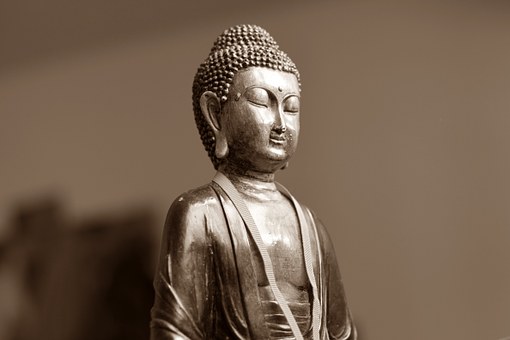8 Interesting Facts about Buddhism
 Buddhism is becoming popular today than ever before. It is spreading in most parts of the western world and other places. It originated from the northeastern regions of India and associated with the famous Gautama Buddha. It was his teachings and the enlightenment he revealed that forms the basis of Buddhism. The term refers to a way of life of people. The people thus follow the teachings of the enlightened one who is Buddha. Buddhism is the oldest religion that is in existence. The movement was in existence even before Christianity and Islam were introduced to the world.
Buddhism is becoming popular today than ever before. It is spreading in most parts of the western world and other places. It originated from the northeastern regions of India and associated with the famous Gautama Buddha. It was his teachings and the enlightenment he revealed that forms the basis of Buddhism. The term refers to a way of life of people. The people thus follow the teachings of the enlightened one who is Buddha. Buddhism is the oldest religion that is in existence. The movement was in existence even before Christianity and Islam were introduced to the world.
1- The Origin of The Term Buddhism
Did you know that most of the Buddhists do not refer to themselves by that name? It was not the followers of the religion that came up with the name. The name arose from the western scholars. The first mention of the name was by Clement of Alexandria in the West writings in 2 AD. Buddha, the founder, founded the movement at around 400 BC. Since then the religion grew up to the current population of over 360 million followers. A large number of followers make Buddhism the fourth largest religion in the world.
2- There is No Belief in a Supreme God
Unlike Christianity and Islam that belief in the existence of God, Buddhists don’t. The argument brings in the aspect of whether Buddhism is a religion or a way of life. Many people don’t consider Buddhism as a religion due to the lack of a supreme being (God). The movement bases its teaching around the concept of karma. The idea stipulates that if you do good deeds to others, good things will happen to you. The opposite is also accurate because if you wrong others; bad things happen to you. Once you recite the mantras, you can cut off the negative karma.
3- The Belief in The “Middle Path”
The enlightenment about the middle path came to Buddha when seated under the banyan tree. After seven days, the revelation came to him that it was essential to live in liberation and moderation. The middle path encourages a balance between sensual indulgence and self-modification. The middle way provides knowledge and wisdom.
4- The Moral Guidelines of Buddhism
Just like any other religion, guidelines govern the movement. Some include:
- Do not wear ornaments or body perfumes.
- Do not kill.
- Do not behave in a sensual manner.
- Do not accept money.
- Do not engage in secular entertainment.
- Do not speak falsely.
- Do not steal.
- Do not ingest intoxicants.
5- Emphasis is on Peace
We all know Buddhism to be the most peaceful religion among all the others. The movement is not as rigid as the other religions present. The argument proves that Buddhism is more of a way of life than a religion. The teachings empower one to engage in their spiritual awakening. There are no rigid rituals and rites that one has to perform to qualify. The freedom brings about peaceful coexistence among people.
6- Belief in Life After Death
Buddhists believe in life after death through the reincarnation of all creatures. Once the reincarnation takes place, one attains nirvana through the rebirth into different forms of life. The monks speak out chants to the animals once they die. The incarnations help to transition the animals into the next kind of life. The monks cremate the bodies of the animals during the funeral as a form of preparation for the next world to come.
7- There is No One Single “Buddhism” Religion
When most of us hear of Buddhism, we think it one big religion. It is essential to keep in mind that there are various forms of the practice. The differences vary in the traditions and beliefs. Followers have different ways of practicing Buddhism, some are monks, some ordinary people, and others are dietitians, while others live in a monastery.
8- Their “Temples” Are Not Temples
The temples are not the common areas of worship scenarios that we know about in other religions. The temples for the Buddhists are places where education and life teachings take place. The people make use of the room for meditation but not worship.

















